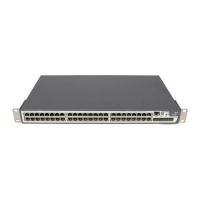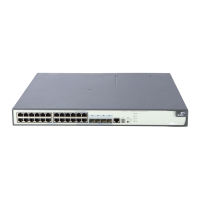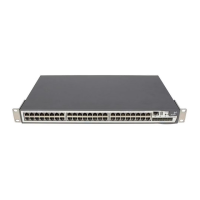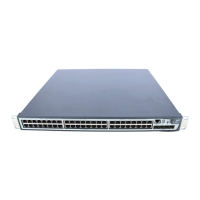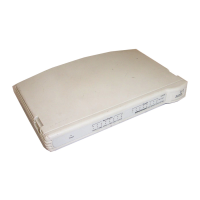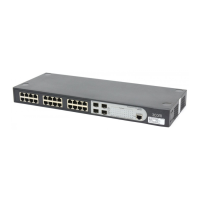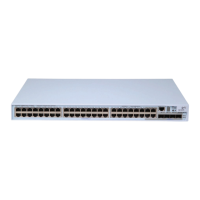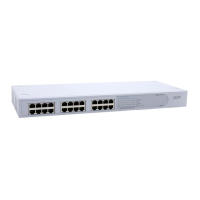IP Routing Policy Configuration Commands 225
It may be necessary that only the routing information that meets special conditions
can be received. Then, the filter-policy command can be used to set the filtering
conditions for the received routing information. Only the routing information
passing the filtration can be received.
Related command: filter-policy export.
Example
Define the filtering rule for receiving routing information of RIP. Only the routing
information filtered through the address prefix list p1 can be received by RIP.
<SW5500>system-view
System View: return to User View with Ctrl+Z.
[SW5500]rip
[SW5500-rip]filter-policy ip-prefix p1 import
if-match { acl | ip-prefix } Syntax
if-match { acl
acl
_
number
| ip-prefix
ip
_
prefix
_
name
}
undo if-match [ acl | ip-prefix ]
View
Route Policy view
Parameter
acl_number
Enter the number of the access control list used for filtration
ip_prefix_name
Enter the prefix address list used for filtration
Description
Use the if-match { acl | ip-prefix } command to configure the IP address
range to match the Route-policy.
Use the undo if-match { acl | ip-prefix } command to cancel the setting of
the match rule.
Filtration is performed by quoting an ACL or a prefix address list.
Related command: if-match interface, if-match ip next-hop, if-match
cost
, if-match tag, route-policy, apply cost, apply ip next-hop, apply
cost, apply local-preference, apply origin and apply tag
.
Example
Define one if-match sub-statement. When the sub-statement is used for filtering
route information, the route information filtered by the route destination address
through address prefix list p1 can pass the
if-match sub-statement.
<SW5500>system-view
System View: return to User View with Ctrl+Z.
[SW5500]route-policy permit node 1
% New sequence of this list
[SW5500-route-policy]if-match ip-prefix p1
